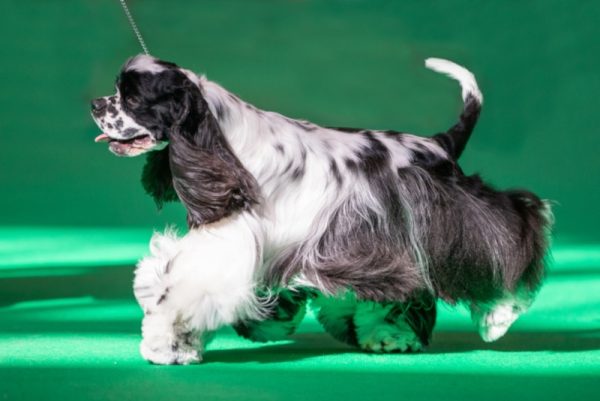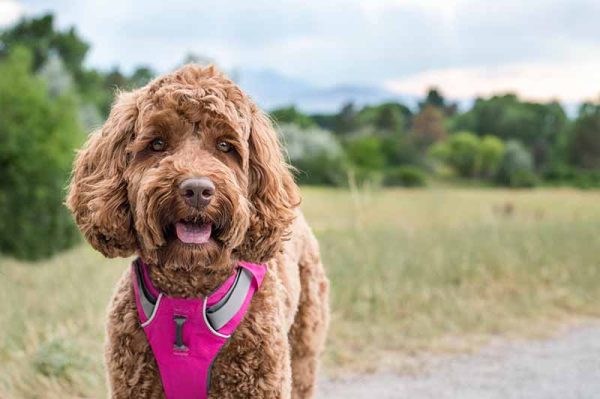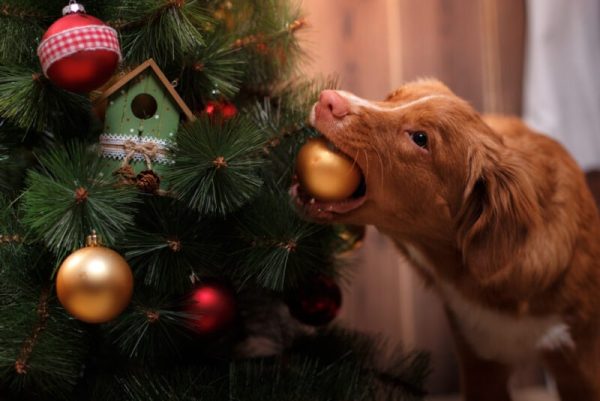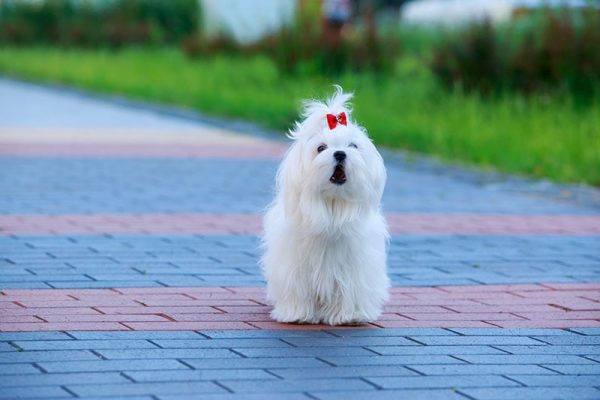Our dogs are more than just pets. They are members of the family. Like with any member of our families, when we see that our pet is in distress, we get concerned. Watching your dog’s eyes water excessively can be very worrisome. Have they hurt themselves? Is it an illness? Could they lose their sight? There are several reasons why your dog’s eyes may be watering. Of course, some are more serious than others. Below, we’ll take a look at 8 possible reasons why your dog’s eyes are watering to help you understand the situation and determine whether it’s time to take your four-legged pal to the veterinarian.

The 8 Reasons Why Your Dog’s Eyes Are Watering
1. Allergies
Just like us humans, one of the main reasons a dog can have watering eyes is allergies. In most cases, watery eyes aren’t the only sign a dog has allergies. Usually, red, itchy skin or sneezing is involved. You may also notice that your dog is losing hair or suffering from a skin infection. If you feel allergies are the reason your dog’s eyes water, reach out to your dog’s veterinarian for assistance.
2. Infections of the Eye
Unfortunately, dogs commonly suffer from eye infections. These infections can be caused by bacterial, fungal, or viral organisms that get into your dog’s eye. These infections can happen if your dog comes into contact with another infected animal, contracts them through their environment, or as a result of eye damage. Eye infections usually cause colored discharge and should be looked at by a veterinarian as soon as they are detected.
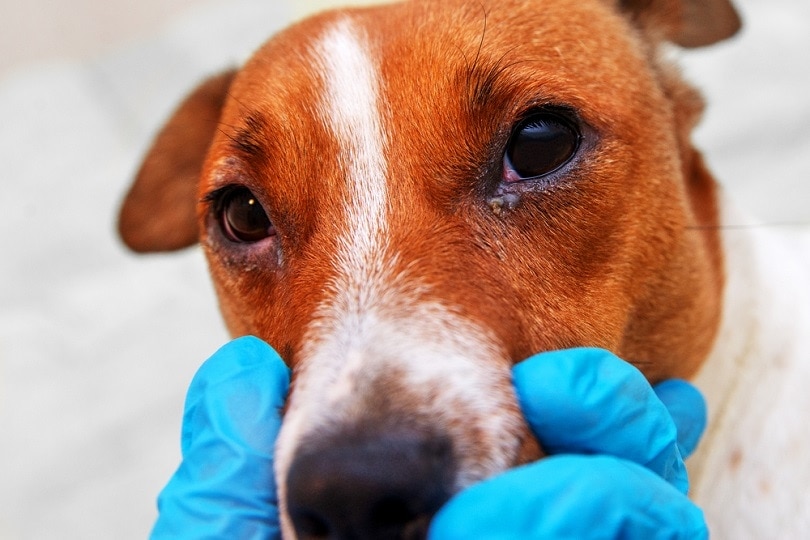
3. Something in the Dog’s Eye
Dogs like to get into things. Thanks to this fact, it’s common for them to get foreign objects in their eyes. Whether it’s a piece of dirt, dust, or hair, getting something in their eyes can cause excessive watering. This watering is the eye trying to remove the object. However, you should pay close attention if you notice this and take your dog to the veterinarian if you suspect your dog got something in their eyes.
4. Eye Trauma
If your dog has experienced a fall, been in a scuffle, or even been slapped by a cat and the eye starts to water, they could have eye trauma. It’s difficult to determine how bad the damage is to the inner workings of your dog’s eye. If you know your dog has experienced some kind of trauma to the eye, schedule an appointment with the vet as soon as possible.
If you want more information or are concerned about the health of your pet, you should contact your vet.
If you need to speak with a vet but can't get to one, head over to PangoVet. It's our online service where you can talk to a vet online and get the advice you need for your pet — all at an affordable price!

5. Glaucoma, Uveitis, or Lens Problems
The internal structures in your dog’s eyes can also suffer from different conditions. High intraocular pressure (glaucoma), internal inflammation (uveitis), and lens issues (cataracts and luxation) can all occur in dogs of any age. One or both of your dog’s eyes may water depending on whether both eyes are affected. You may also notice your pet’s eye is cloudy, or they might appear blind. Your dog’s veterinarian will help you understand what is happening and advise you on the best course of action to help your pooch navigate this situation.
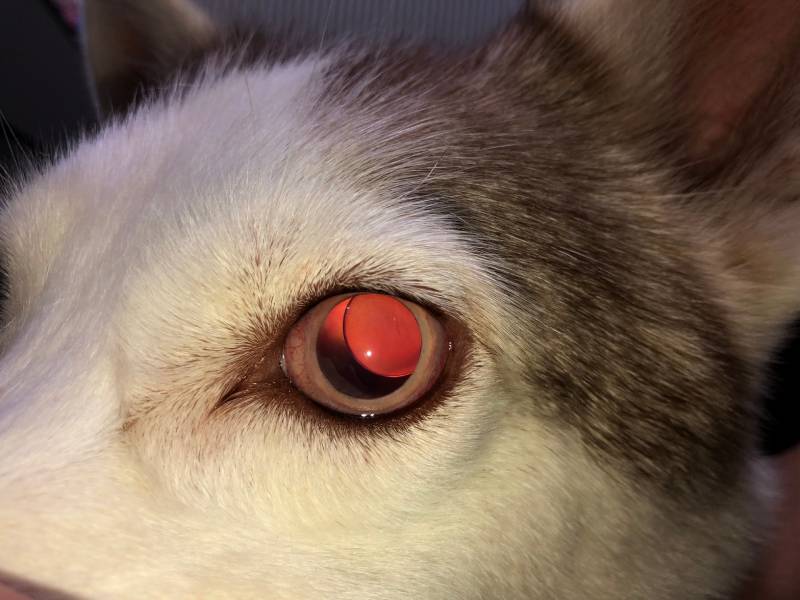
6. Corneal Ulcers
Corneal ulcers are wounds on your dog’s cornea, the transparent layer that is at the front of your dog’s eyes. Corneal ulcers can cause watering and discharge, and, depending on the size and the depth, they can even lead to blindness. Unfortunately, dogs are prone to these ulcers. Corneal ulcers can be caused by trauma, foreign bodies, or rubbing from hairs. Your dog’s veterinarian will assess the type of ulcer and provide a treatment plan, which can be medical or surgical.
7. Tear Duct Blockages
Dogs have a duct that connects their nasal passages and the eyes. This allows drainage from your dog’s eyes to go through the nose. If your dog’s duct becomes blocked, this can result in excessive eye watering and even discharge.
8. Eyelid Abnormalities
There are certain dog breeds that are more prone to eyelid and eyelash conditions. These conditions can cause the eyelid to turn inward (entropion) or outward (ectropion). Unfortunately, many of these conditions require surgery to repair and avoid major problems. The majority of these conditions initially cause excessive eye watering in your pet.
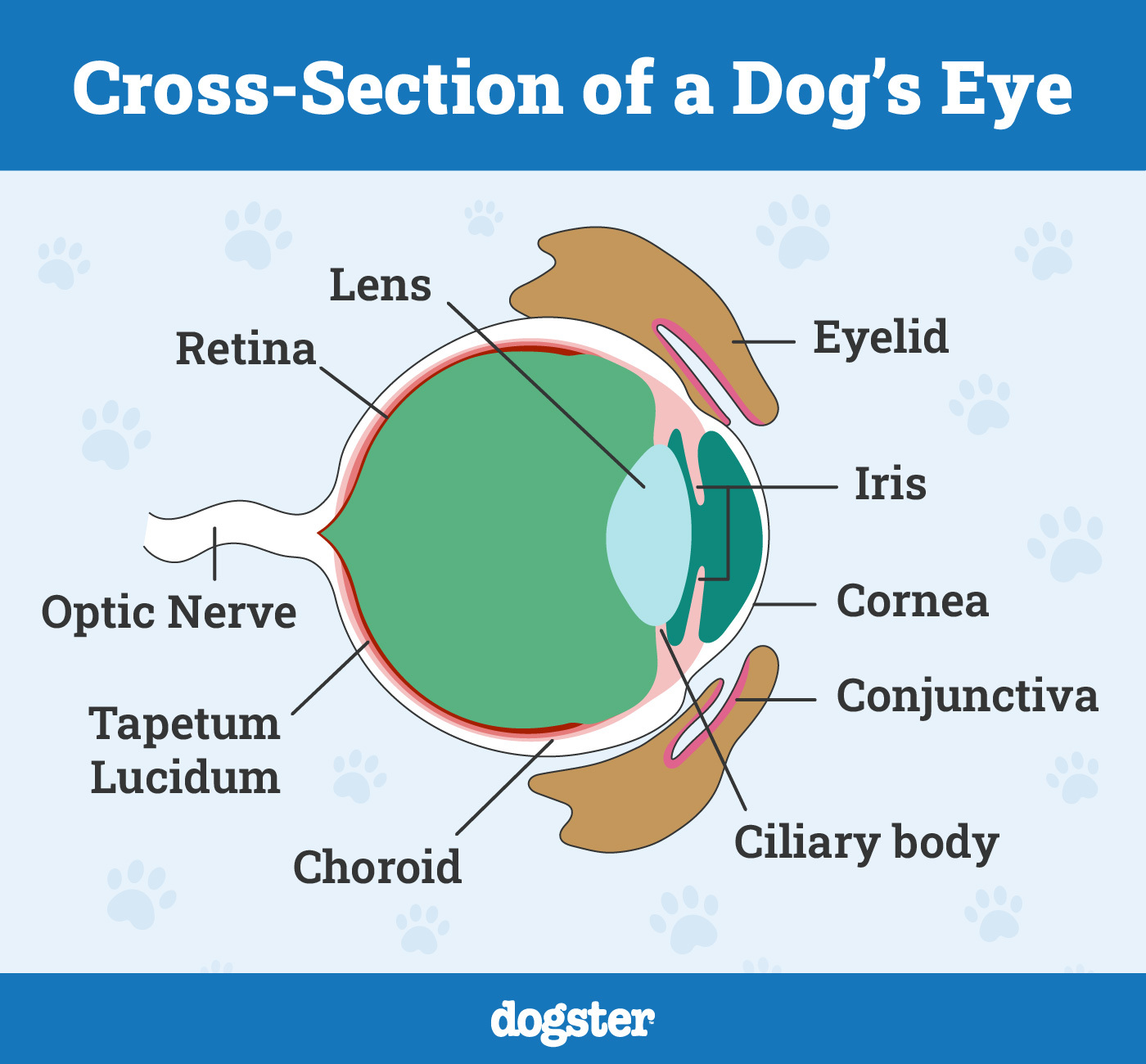

Final Thoughts
As you can see, there are several reasons why your dog’s eyes may be watering. Several of these reasons aren’t cause for concern and may clear up on their own. On the other hand, however, a few of these issues can be quite dangerous. If your dog’s eyes don’t look right or you feel your dog is uncomfortable, take them to the veterinarian immediately. Untreated eye issues can result in excessive pain, clouded vision, or even blindness.
Featured Image Credit: nadisja, Shutterstock




